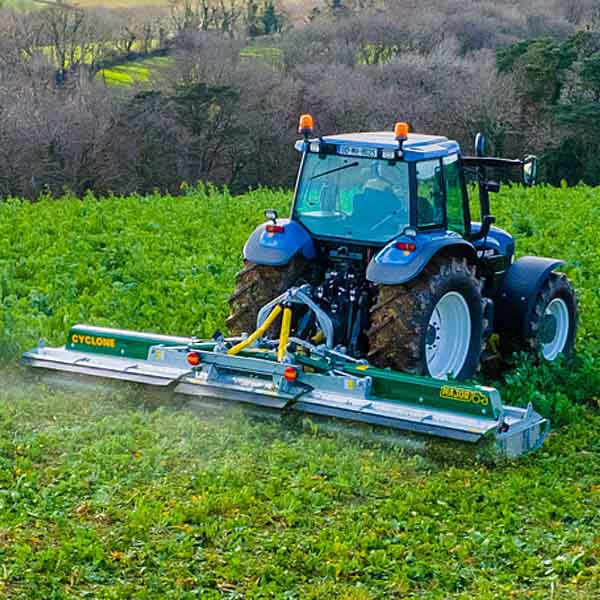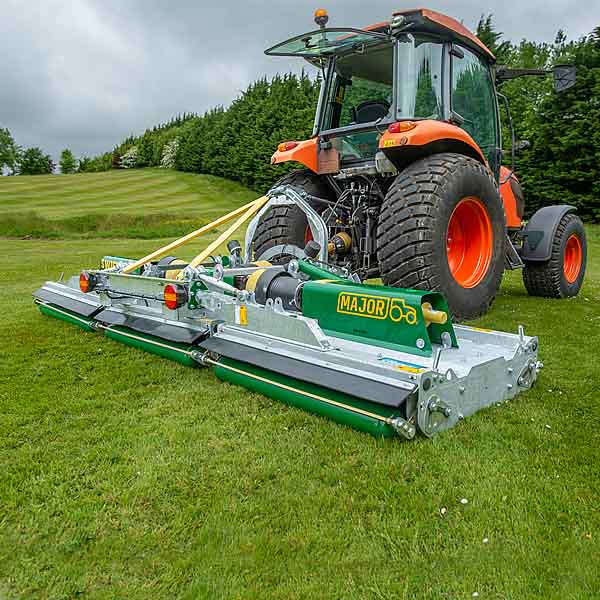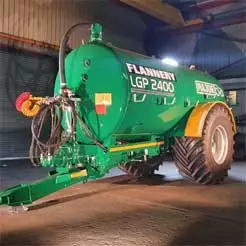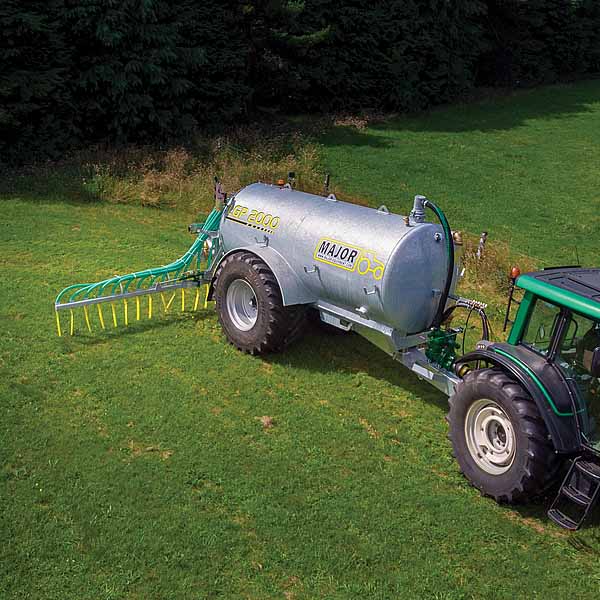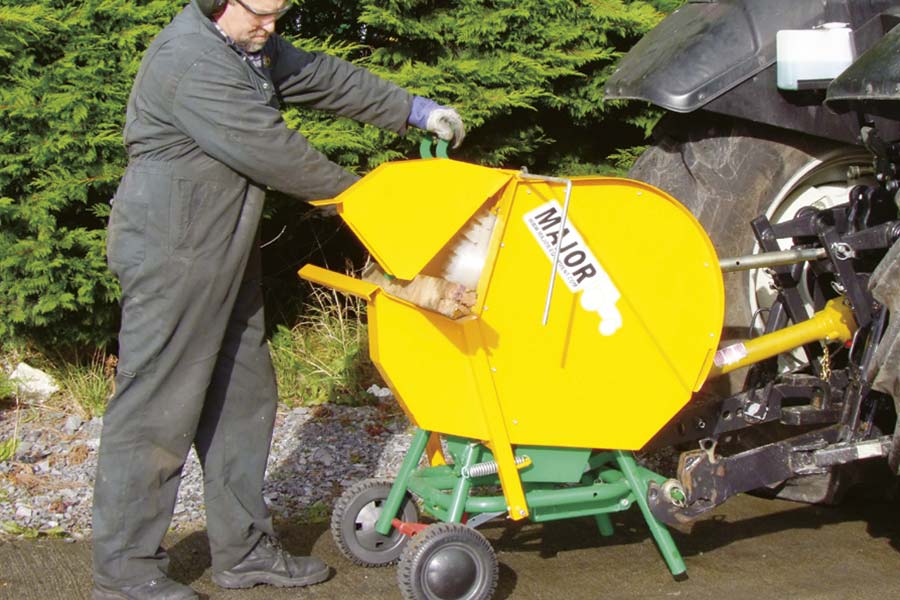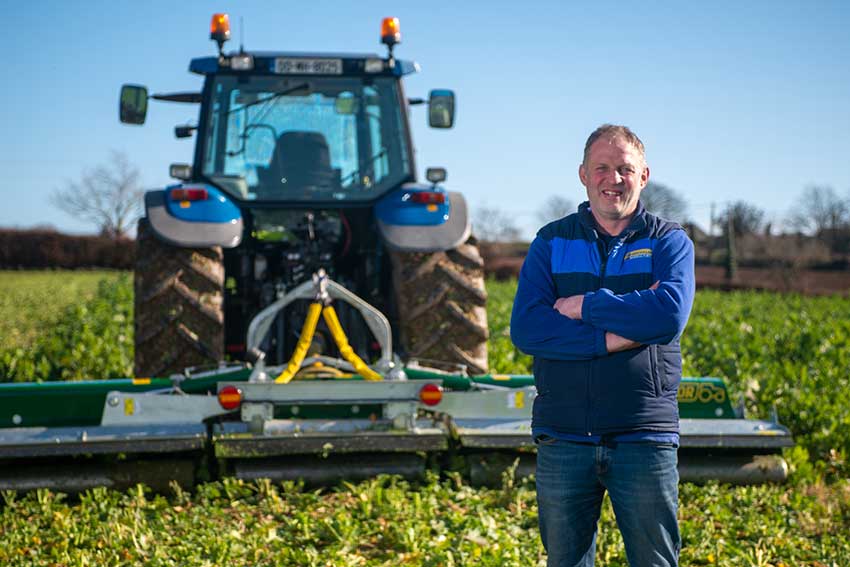New Major Cyclone improves output and fuel efficiencies for arable operation reliant on cover crops for soil health.
“By growing cover crops, we can recycle nutrients, increase the soil organic matter, as well as protect our soils from erosion,” says Gordon Sullivan. “It all leads to the potential of improved profitability.”
Gordon is the fourth generation farming arable crops outside Kinsale, Co Cork. He works alongside his father John Sullivan, 83 years, growing mixed tillage crops of winter beans, winter wheat and spring barley in rotation on 358 acres of land. Brassica sowings are used as break crops. Without farm stock, cover crops are an essential part of their way to maintain healthy soils in this entirely arable operation.
“We don’t have stock on our farm and there is no re-usable farmyard manures, therefore cover crops are our best solution,” explains Gordon. “We typically experience heavy rainfall where we farm. After a winter wheat harvest, without cover crops, these fields can experience soil loss through surface run-off and through wheelings. Fields that have cover crops have shown very little erosion, if any, even in areas that tend to lay wet,” added Gordon.
Flail mower is far from perfect
John and Gordon used to use a flail mower to process cover crops into the soil, but the flail system is typically slow, with a scant output of three acres per hour. It’s also power hungry and costly to run. More importantly, it wasn’t mulching the crop residue and green manures sufficiently.
“In the business environment we find ourselves, it is incumbent on us to find ways to reduce our operating costs and maximise our production performance,” continued Gordon. “The old flail mower was hard on the tractor, expensive to maintain, and very poor at daily output.”
“Growing and managing cover crops is an essential part of our cropping rotation so we decided to look at ways to improve mulching efficiency and speed up the entire mulching process.”
Major upgrade improves operational efficiency
The Sullivans explored the market and found the Major Cyclone suited their requirements very well. They settled on the 5.6m model with eight rotors and 32 knives. This fully-mounted topper can be folded up into a tidy 2.02m transport width.
“What really attracted us to the Major Cyclone was the fact that it was almost twice the width of the previous flail mower, uses 25 percent less fuel, and covers the ground much faster,” continued Gordon. “We got anything between seven and ten acres an hour, and it has a much lower capital outlay!”
“On top of all this, the mulching capability of the Cyclone is quite astonishing! You don’t see swaths of residue lined up behind the mower at all,” enthused Gordon. “In fact, the mulched cover crop or crop residues are completely chopped and disappear quickly and easily into the remaining cultivated soil tilth.”
“It only requires a 120-hp tractor to drive the Cyclone, far less than a typical flail mower.”
“The Major Cyclone is twice the width of our previous flail, uses 25 percent less fuel, and covers the ground much faster.”
Build and galvanisation protects the family’s investment
The Major Cyclone is manufactured from High-performance Strenx™ 700 MC structural steel for longer life and lighter overall weight, which is a benefit in reducing soil compaction. Hardox® 450 abrasion-resistant steel is used for the under-sole discs ensuring a long wear life and lower operating costs.
“Our investment in the Major Cyclone is well protected because the topper is hot-dipped galvanised, which protects against rust. Anyone near the coastline will be aware of what sea air can do to a machine that has chipped paint.”
“The Cyclone is fully mounted, so no wheelings, and is easy to operate. By adjusting the full-width rear roller, we can control the level of mulching we require according to the vegetation we are processing.”
“Through soil testing we are already seeing the benefits of using cover crops in rotation. The mulched green manure increases the organic matter in the soil, which has a direct and positive effect on yields,” says Gordon. “If we can reduce our fertiliser input costs then there is a double benefit to our crop husbandry policy.”
“We genuinely feel that the Major Cyclone is one of the best investments we’ve made to help our family farm maintain a level of profitability that will see the next up-and-coming generation support and continue to grow our family business,” concluded Gordon.

